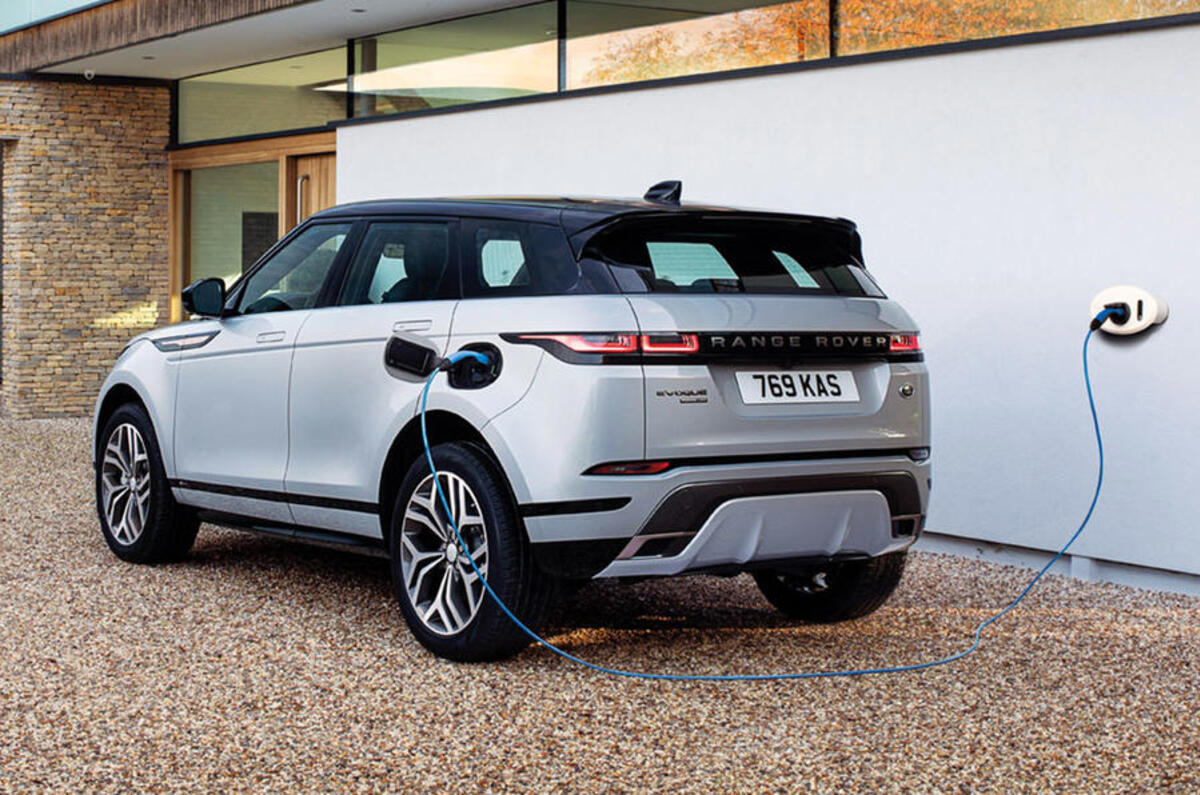The next-generation Range Rover Evoque and Land Rover Discovery Sport will switch to the firm’s new ‘native electric’ architecture and be offered with hybrid and full-electric powertrains only.
As part of Jaguar Land Rover’s new Reimagine business plan, Land Rover will launch six battery-electric variants within the next five years, and will use only electrified powertrains from 2026 onwards – although that includes mild-hybrid systems. By 2030, Jaguar Land Rover is aiming for 60% of its global sales to be fully electric, 10% to be plug-in hybrid and 30% to be mild or standard hybrid. It is aiming for all global sales to be zero-emission vehicles by 2036.
All future Land Rover models will switch to one of two new platforms: the mixed-powertrain Modular Longitudinal Architecture (MLA) and the ‘BEV native’ Electrified Modular Architecture (EMA). In an investor presentation, the firm revealed some early technical details of those platforms, and which cars will be built on them.
The EMA platform will be introduced from 2024, and the firm has confirmed it will be used for the next-generation Range Rover Evoque and Discovery Sport models. That means future versions of those models won’t be offered in either pure combustion or mild-hybrid forms.
Land Rover said that the EMA platform will be engineered around the underfloor EV battery, with a ‘simple’ body structure and a flat floor to maximise space. The firm said that JLR-designed electric drive units (EDUs) will be centred on 800V technology and offer an efficiency of around 4-4.5 miles per kWh for EVs based on the EMA platform. It also claimed its EDUs will be the “most torque dense” in class.
While the EMA platform is designed for electric cars, it can be fitted with hybrid and plug-in hybrid systems, which will use “electrified compact ICE propulsion systems with lean burn technology”.
The MLA platform is due to be introduced in 2022 or 2023, and will be used for models including the next-generation Range Rover and Range Rover Sport. Described as a ‘flexible’ architecture, it will accept mild-hybrid, hybrid, plug-in hybrid and fully electric powertrains.
Notably, the investor presentation did not specify which platform the next-generation Velar would use, although it would probably be the EMA architecture. As well as launching EV variants of existing models, Land Rover will launch an electric-only nameplate within the next five years - and it is possible that the future Velar could be EV-only to ensure greater differentiation from the Evoque.
The investor presentation also hinted again at the planned expansion of the Defender model into a full ‘model family’, with a graphic showing Land Rover’s future model line hinting at two new variants. They could include the Defender pick-up, which the firm has hinted at previously.
READ MORE
Land Rover launches Discovery Sport and Evoque plug-in hybrids








Add your comment